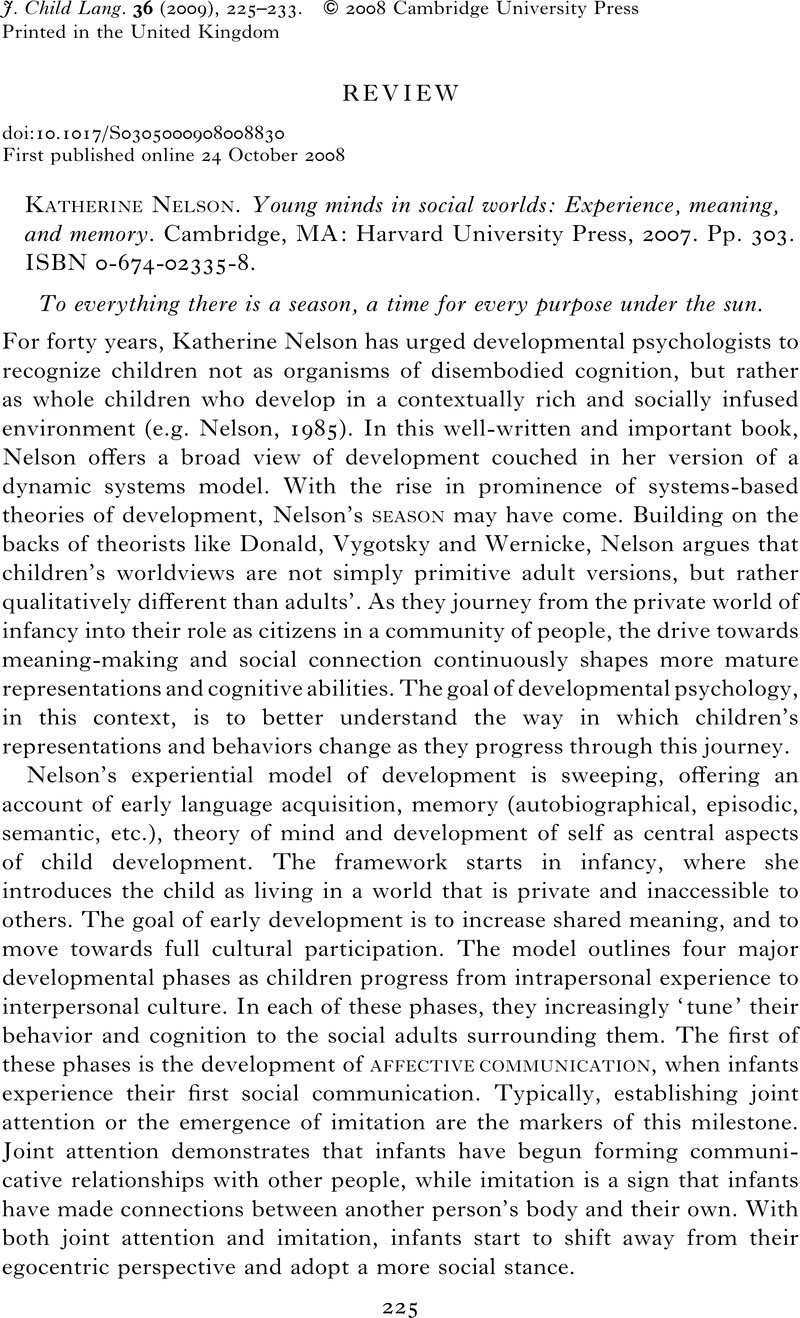Crossref Citations
This article has been cited by the following publications. This list is generated based on data provided by Crossref.
Allen, James W.
and
Lalonde, Christopher E.
2015.
Children's Use of Speech and Repetition in Oral Storytelling: The Role of Cultural Patterning in Children's Retellings of First Nations Oral Narrative.
Human Development,
Vol. 58,
Issue. 2,
p.
70.
Fivush, Robyn
2015.
The Narrative Construction of Human Meaning.
Human Development,
Vol. 58,
Issue. 6,
p.
365.



